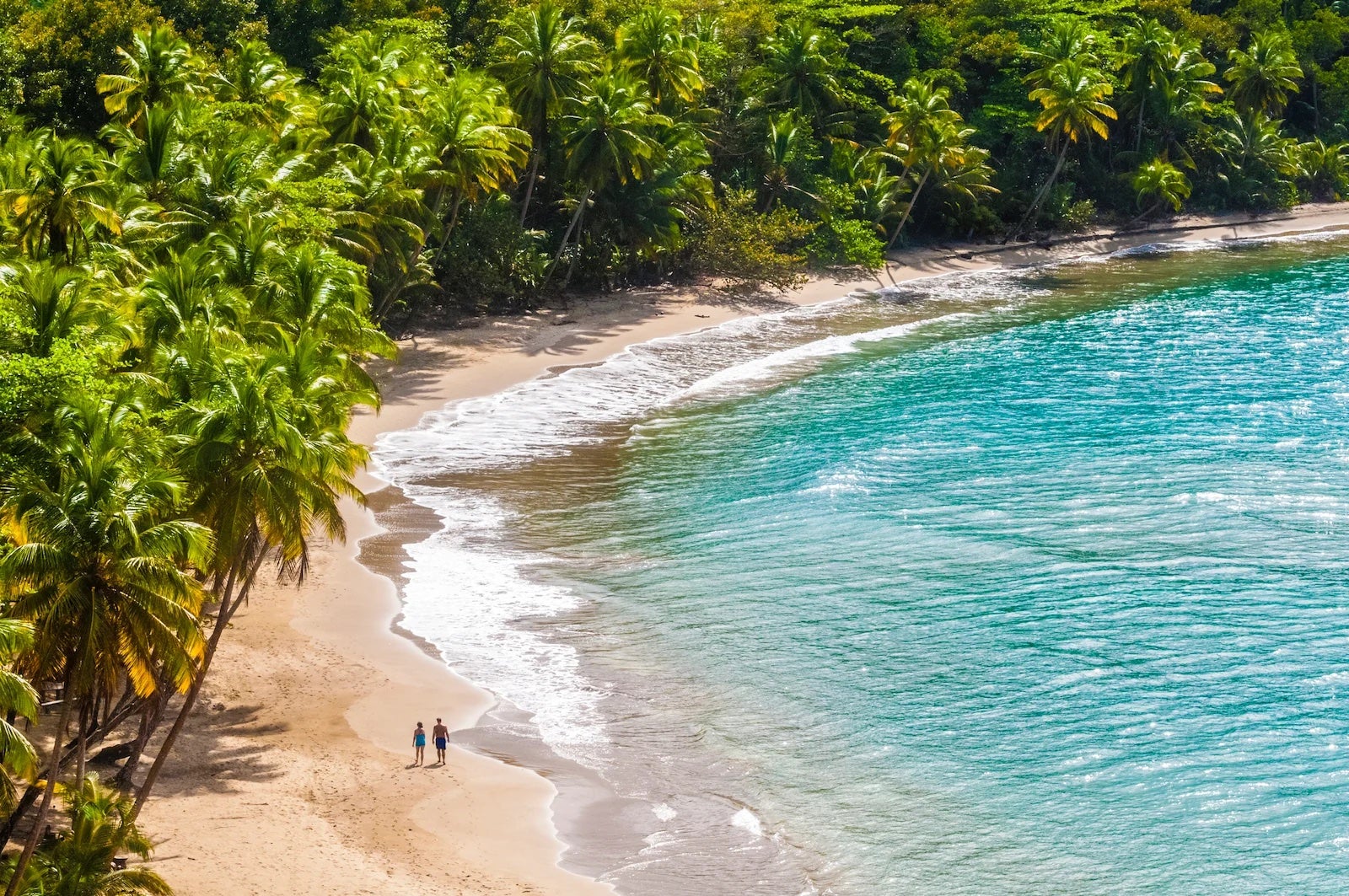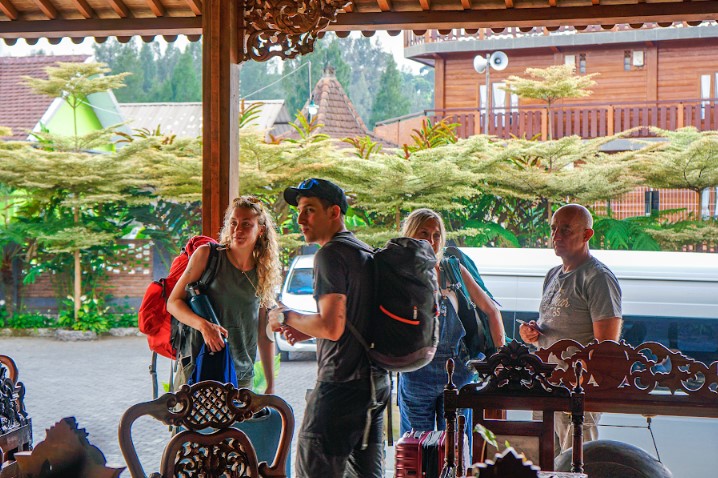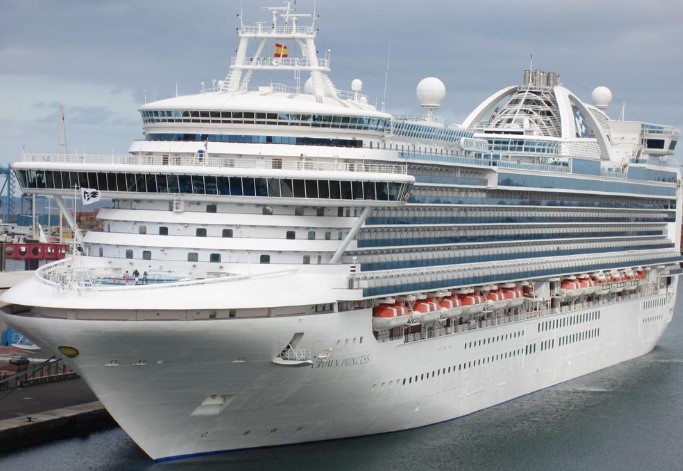Craving the sensation of some winter sun on your skin, amid the slowly dropping temperatures in the U.S.?
A few obvious holiday destinations may spring to mind. Mexico, Florida, the Maldives, Dubai … they’re all classics for a reason, delivering scorching temperatures throughout the shivering depths of December and January. But that also means they’re very popular — and if you find yourself lusting after a hot vacation every fall, chances are you’ve already been to a few of them, anyway.
If you’re looking for something a little different, try these ideas for a sunny winter getaway instead.
La Gomera, Spain
Gran Canaria, Fuerteventura, Tenerife and Lanzarote are well known in the world of winter sun-seeking, thanks to their prime position off the coast of northwest Africa promising warming temperatures (with average highs of 78.8 degrees in October, dropping to the upper 60s from December to March).
All of these bigger Canary Islands are usually safe bets, weather-wise. But there are eight islands in total, and La Gomera, the second smallest, is one to carefully consider. Temperatures average around 70 degrees during winter, and are typically mild and pleasant. Expect black-sand beaches to lay on (or play on), epic cliffs to hike, and plenty of mirador viewing points for the perfect holiday snap — plus the dramatic, UNESCO-listed laurel forests of Garajonay National Park for a daytrip adventure.
If you can, it’s also worth boating to the smaller-still El Hierro, or the peaceful La Graciosa, which claims to be one of the world’s only places to have eschewed asphalted roads. Truly blissful.
St. Vincent and the Grenadines
High 60s just not hot enough? In the Caribbean country St. Vincent and the Grenadines, average temperatures range from 77 degrees up to 86 degrees throughout a tropical December, January and February, with November marking the end of the hurricane season.
Surrounded by St. Lucia, Barbados and Grenada, the sandy beaches here are crisply white, the ocean a luminous turquoise. There’s the main island, St. Vincent, which is surrounded by pure, lush greenness and home to La Soufriere, an active volcano. By ferry, you can reach Bequia, an island known for sailing and diving, an endangered turtle sanctuary, and the beautiful Princess Margaret Beach. If you’ve money to spare, a stay on the exclusive private island of Mustique — historically a British royal family favorite — can also be organized.
Related: 7 ‘secret’ Caribbean destinations you should know about
Sign up for our daily newsletter
Zanzibar, Tanzania
Off the coast of Tanzania is Zanzibar, an archipelago where visitors can embrace a double dose of fascinating culture and sparkling, untouched beaches. January and February are particularly good times to go, with (typically) less rain than in December and temperatures hotting up into the 80s, reaching up to 95 degrees.
Highlights include the main island, Unguja, and its old trading quarter Stone Town — now a UNESCO World Heritage Site for its “cultural fusion” of African, Arab, European and Indian influences, seen in the architecture, as well as its historic role in the ending of the slave trade. There’s also Jozani Chwaka Bay National Park — home to a rare primate, the red colobus. Beyond Unguja, snorkeling among the coral reefs of the private Chumbe Island, where guests can spend the night in a forest-surrounded eco-lodge, is quite the experience.
Related: Plan the ultimate African safari with these 12 bush-to-beach destinations
Valletta, Malta
You can secure a touch of winter sun just about anywhere in Malta, from the historic town of Mdina to the cool, lagoon-skirted islands of Gozo and Comino. Still, the yellow-hued capital Valletta is a great place to start — with the scenic waterfront to mosey along, a 16th-century cathedral, the Fort St. Angelo site and the picturesque Upper Barrakka Gardens, not to mention nearby towns such as Sliema to explore. TV and film fans will love it here, too, for Valletta has starred as a filming location in “Game of Thrones,” “Troy” and “Gladiator,” among others.
Related: 8 of the best destinations to visit in December
Dominica
As the rainy hurricane season ends in November, the winter months prove an excellent time to visit the Caribbean nation of Dominica. Average temperatures at this time of year can top 87 degrees and it’s similarly warm in the water at around 80 degrees, perfect for snorkeling and diving.
An island country, it (obviously) has beaches. But if all you want is somewhere to lay on the sand, then perhaps Dominica isn’t the best fit for you — as there’s much to see and do, from spotting the island’s colorful birds and whale watching to uncovering seemingly endless natural beauty, including lush forests, nine volcanoes, numerous waterfalls, hot springs and Morne Trois Pitons National Park, where you can take a long hike to the natural, steam-spouting 196-degree Boiling Lake. Walkers will thrive here, by embarking on the 115-mile-long Waitukubuli National Trail.
The Algarve, Portugal
But just how hot can Portugal be in December? Well, it’s a similar picture to Malta, with an average high of 63 degrees in December, with things getting significantly chillier in the evenings at around 47 degrees. It’s the same in January and February. Still, it’s one of the warmer places in Europe at this time of year, so while you may not be in a T-shirt 24/7 or in full bathing suit mode, you’ll have a chance of escaping the U.S.’s colder daytime temperatures. You’ll also get to avoid the summer crowds.
Related: 8 reasons Portugal is the perfect place to visit
Curacao
Curacao is the “C” in the Caribbean’s ABC islands — with the “A” being Aruba and “B” being Bonaire. All three are ideal winter sun destinations, enjoying average high temperatures in the 80s throughout December, January and February. Indeed, this is peak season for travel, but it’s well worth it.
You’ll find white sandy beaches and clear-as-day water as well as resort-style hotels in Curacao, but you don’t want to miss the chance to go diving or explore the island, which is part of the Netherlands. The influence is certainly visible in the Dutch-inspired architecture of the UNESCO-listed capital, Willemstad, painted with greens, oranges and blues, and lined with lively cafes. February is a great time to visit, as the annual Carnival takes place.
Agadir, Morocco
Resort city Agadir on Morocco’s south coast is a fine option for winter sun. The temperature can climb to an average high of 71.6 degrees — though the 50s are also likely — with the sea staying warm enough to dip your toes in without yelping.
Agadir is known for its long stretch of golden beach (Plage d’Agadir), but it does have local souks to explore, a recreation of an old medina to marvel at, cultural museums to take in, and a couple of golf courses (if that’s your thing). You’ll also be within close travel distance (30 minutes) to the fishing village of Taghazout, known for its excellent surfing and scenic beaches, as well as road tripping distance (approximately three hours) from the historic port city of Essaouira.
Related: 8 unbelievable, round-the-world private jet trips
Iguacu Falls, Brazil
Expect high temperatures in the region of 78-91 degrees (and perhaps the odd rainfall) in Brazil throughout November (the end of spring), and December to February (summer) — which makes it an ideal time weatherwise to visit one of the South American country’s greatest wonders: Iguacu (or Iguazu) Falls.
They can be seen from either Brazil or Argentina, in their respective Parana and Misiones national parks. They are a cloudy, plunging spectacle, spanning 8,858 feet and dropping 269 feet (at their tallest) into the river below, combining into the world’s largest waterfall system. OK, so you won’t be lying on the beach getting a tan, but you will get to see one of the world’s most impressive natural sights — and in the park, which spans more than 450,000 acres, there are opportunities to explore the jungle, and if you’re lucky, see the local wildlife, which includes giant anteaters and giant otters. A once-in-a-lifetime trip.
Funchal, Portugal
Funchal, the capital of the Madeira archipelago, is an easy place to while away a few days. Enjoy a relaxed trip to the farmers market, a stroll around the vibrant Madeira Botanical Garden and the pretty cobbled streets of Zona Vieja, or take a ride on the Funchal cable car before popping in for a long lunch and a spot of wine tasting. Soccer fans can even visit a whole museum dedicated to the city’s superstar son, Cristiano Ronaldo, showcasing some of his many, many trophies.
If you have more than a few days to spare, there’s plenty more of this Portuguese island to explore, from its unique walks along miles of levadas (water channels, built for irrigation) to Porto Moniz’s natural pools and Santana’s traditional thatched houses. Often touted as a year-round destination due to its position on the northwest coast of Africa, you can expect to experience decent temperatures from autumn into early winter — i.e., average highs of 71.6 degrees in October, 68 degrees in November and 66.2 degrees in December. Expect chillier evenings, though, and the odd flash of rain.
Related: Azores vs. Madeira: Pick your perfect Portuguese vacation island






More Stories
Cruises from Fremantle: A Gateway to Memorable Journeys
Camping Axes: The Essential Tool for Outdoor Adventures
Why Poland Should Be Your Next Winter Destination: A Guide to Unforgettable Winter Escapes